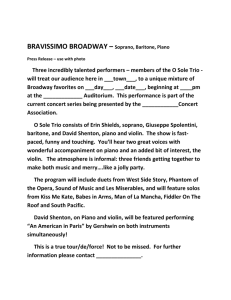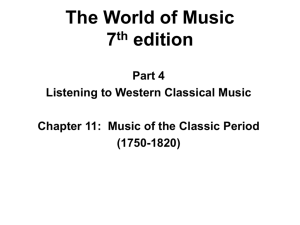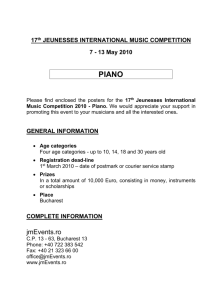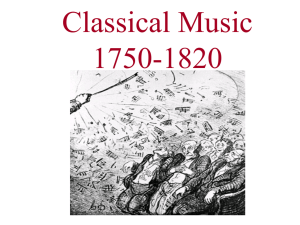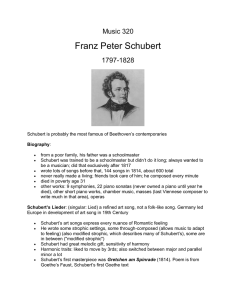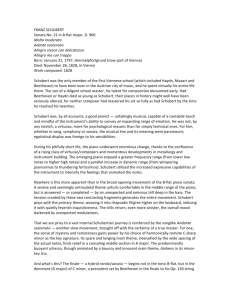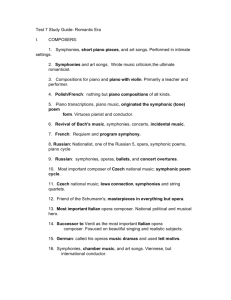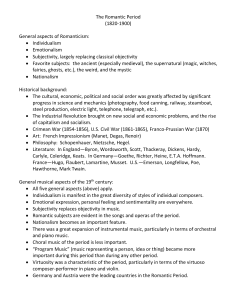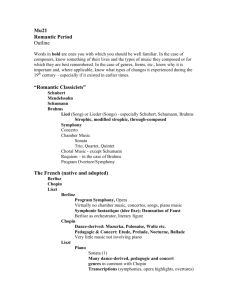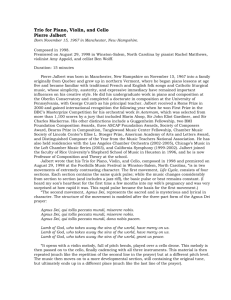LALLsp011
advertisement
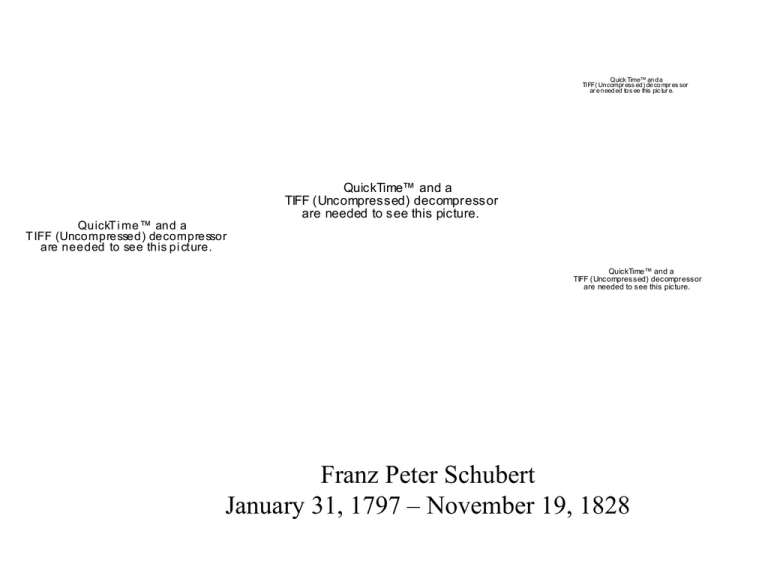
Quick Time™ an d a TIFF ( Un compr ess ed ) de co mpr es sor ar e n eed ed to s ee this pic tur e. QuickT i me™ and a T IFF (Uncompressed) decompressor are needed to see this pi cture. QuickTime™ and a TIFF (Uncompressed) decompressor are needed to see this picture. QuickTime™ and a TIFF (Uncompressed) decompressor are needed to see this picture. Franz Peter Schubert January 31, 1797 – November 19, 1828 In his lifetime, he composed: 600 songs 9 symphonies (±) 15 string quartets several works for violin/piano duo, and some others 2 (complete) piano trios 2 great quintets 1 great octet many works for piano four-hands (including the Grand Duo) perhaps 21 piano sonatas (±) 6 masses and much other liturgical music 1 oratorio 5 (or so) operas, and much incidental music for the stage - who knows what else... (the ‘Deutsch’ catalogue lists 998 items) Childhood: -grew up in a musical family in Vienna - a family string quartet provided occasion for his first several quartets [he played the viola - as did Mozart before him] -- father a schoolmaster and amateur musicians -- he taught Franz violin; his brother Ignaz, piano -- scholarship to state music academy (age 13) - Late teens: -- went to work in his father’s school, as a teacher for 2 years (he hated it and was not very good as a teacher) 1815 - composed 20,000 bars of music -- 140 songs, a symphony, -he was a hard worker, arising early and composing til past midday -developed several lifelong friendships with men who helped him by providing lodging, compostion paper, and later with publication and preservation of his works. Maturity (1820-1828) -a life of composing and partying 1822 - “Unfinished” symphony 1824 - Arpeggione sonata ... 1825-6: “Death and the Maiden” quartet Great C Major Symphony (rev. 1828) Last quartet (no. 15) 1827 - Winterreise; Fantasy in C for violin/piano; Impromptus (piano); both piano trios; 1828: last three piano sonatas; Schwanengesang; String Quintet in C Anthony Tommasini: “Schubert’s first few symphonies may be works in progress. But the “Unfinished” and especially the Ninth Symphony are astonishing. The Ninth paves the way for Bruckner and prefigures Mahler.” Death (Nov. 1828) -Apparently of mercury poisoning -mercury was used as a “cure” for syphilis -(a physician said it was typhoid...) -In Sum: - Schubert lived in “poverty” - his income was from publishers. - It wasn’t so tiny, but he was generous to a fault - He never taught once he quit schoolteaching -- He wrote what he pleased -- He did what he pleased! -And mostly, he was pleased to composer music ... -To our unending benefit! Course Schedule: I-III: Schubert - early, middle, late April 13: early quartets, symphonies, IV: Berwald V-VI: Bruckner Musical Selections for April 13: Early symphonies Early quartets Trio movement (1812) a few characteristic songs

